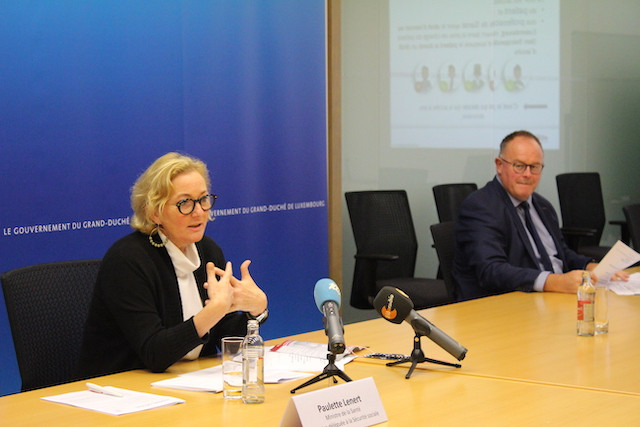CNS patients currently advance money paid to doctors and then claim back the part covered by the public health insurer. But the government is preparing to automate the system by 2023, health minister Paulette Lenert (LSAP) said at a press conference on Tuesday.
This would allow the doctor to submit their bill to the CNS, which would--within seconds--determine its share of the cost and transfer the money. The system would be another step forward in the digitalisation of Luxembourg’s health sector.
The eSanté platform currently hosts 625,564 digital patient files, the so-called “Dossier de soins partagé” (DSP), and is on schedule to extend the service to all 850,000 people insured through the CNS early next year.
The DSP allows doctors to access and input patient records although it is up to the patient what information is shared. Lenert said that the DSP would give patients better access to their medical records and encourage “patient empowerment.”
The file is automatically set up and users have to opt out if they do not want to share their medical data on the platform. A public campaign presented by Lenert and Schneider on Tuesday aims at raising awareness about the patient file and its functionalities. Users can, for example, indicate organ donation preferences in the DSP.
The DSP has been in the making for around 15 years and took until 2010 to be approved by parliament over data protection concerns. More than 747,000 documents have been uploaded into the system, such as the results of medical tests and treatments.
